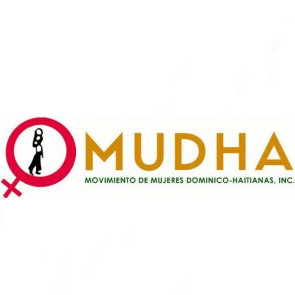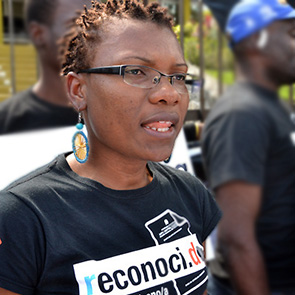Attacks against human rights defenders and organisations working for the rights of migrants in the Dominican Republic
Front Line Defenders expresses its deep concern at the escalating violence against those who defend the rights of migrants and people of Haitian descent in the Dominican Republic, in particular since the anti-discrimination protests of 23 September, 2024 in Santo Domingo and the recent statement of the President of the Dominican Republic on 2 October 2024, when he announced a plan to deport 10,000 Haitians per week starting on 4 October 2024. In 2024 the country marks 11 years since the Decision 168-13 of the Constitutional Court, which deprived four generations of Dominicans of Haitian descent, born between 1929 and 2007, of their right to the Dominican nationality, with its effect having been implemented retroactively. Between September and October 2024, several organisations and human rights defenders promoting migrants’ rights, as well as the communities they work for, have been subjected to intimidation and violence, including through xenophobic speeches and threat of mass deportation.
In this context, several organisations and human rights defenders working on migrants' rights and the rights of Dominicans of Haitian descent have been the subject of attacks in physical and online spaces. Most of the attacks were perpetrated by people close to the defenders, such as their neighbours, or through the use of social media. There have also been reports of arbitrary arrests based on racial profiling, with Dominican defenders being accused of lying and being Haitian instead, based on the colour of their skin, as well as intimidation by aggressors outside the offices of well known civil society organisations. Front Line Defenders has received information on several cases, including the cases of Wendy Osirus from the Movement for Human Rights Peace and Global Justice (MONDHA), staff of Movimiento de Mujeres Dominico Haitianas (MUDHA), Ana Belique and Franklin Dinol, from Red Común Nacional Organizada de Ciudadanos/as Domininicanos/as (Reconoci.do), and the office and staff of the Socio-Cultural Movement for Haitian workers (MOSCTHA).
On 5 September 2024, a Dominican media outlet released an article about Wendy Osirus with a photo belonging to a person in detention, not the human rights defender. Local organisations believe this was published with the intention of portraying a negative image of those who work for the defence of the migrant population. Wendy Osirus is the founder of several civil society organisations in both Haiti and Dominican Republic, including the Movement for Human Rights Peace and Global Justice (MONDHA), which was founded in 2005 with the aim to improve life conditions of communities that are in a vulnerable situation, with emphasis on programs for women and youth from communities of Haitian descent.
Woman human rights defender Ana Belique has also been targeted. Whereas attacks against her are not new, it had an unprecedented increase on social media platforms such as Facebook, X and WhatsApp since the beginning of October, where many users have been sending hate messages with derogatory terms used to describe the WHRD, questioning her Dominican Republic citizenship and demanding her expulsion from the country. Several social media users have also shared fake news informing of her death. Ana Belique is the coordinator of Reconoci.do, a movement that campaigns for citizenship rights and equality for all Dominicans of Haitian descent, mobilizing and empowering marginalised communities, and accompanying people who need legal support to secure their documents.
On 8 October 2024, members of MOSCTHA were verbally harassed by a group outside of their office, who shouted anti-Haitian insults outside of the organization’s office. This is the most recent attack MOSCTHA has received by different groups of people targetting the work the organisation does for Haitian population and their families. MOSCTHA is a well established non-profit organisation founded in 1985, its work consisting of human rights programs and projects which benefit people in a vulnerable situation, particularly Haitian migrants and their families, including women and girls from Bateyana communities and other marginalised neighbourhoods. The organisation promotes access to social protection and the respect of these communities fundamental rights via political advocacy, legal assistance, attention to health matters, employment training, and education. The work of MUDHA, another organisation that has been working for the defence of the human rights of communities of Haitian descent in the Dominican Republic since the 1980s, has also been targeted. In particular, MUDHA’s director has been the victim of increased defamation attacks via social media platforms.
Finally, on 12 October 2024, human rights defender Franklin Dinol was arbitrarily detained by police agents in the city of El Seibo. The police demanded to be shown documents and then accused the human rights defender of having false Dominican documents, and that he was Haitian instead. Franklin Dinol was released two hours later. The human rights defender is also a member and coordinator of Reconoci.do movement.
People of Haitian descent, including human rights defenders, have traditionally been victims of discrimination, racism and xenophobia in the Dominican Republic. The Dominican Republic's relationship with Haiti, its diaspora and its migration policies are at the forefront of the country's politics, with the country's presidents repeatedly pushing for controversial measures to stem the flow of Haitians, including the construction of a wall and the revocation of the nationality of thousands of Haitians and Dominicans of Haitian descent, who have been rendered stateless. Organisations and movements such as MONDHA, MUDHA, Reconoci.do, and MOSCTHA play a crucial role in defending and promoting the rights of this population. However, their human rights work is regularly met with attacks and reprisals by the government, whose rhetoric and actions, including deportations and revocation of Dominican nationality, contribute to the negative narrative against them in the wider society.
Front Line Defenders strongly condemns the attacks against the human rights organisations Movement for Human Rights Peace and Global Justice (MONDHA), Movimiento de Mujeres Dominico Haitianas (MUDHA), Red Común Nacional Organizada de Ciudadanos/as Domininicanos/as (Reconoci.do) and the Socio-Cultural Movement for Haitian Workers (MOSCTHA), as well as the attacks against human rights defenders Wendy Osirus, Ana Belique and Franklin Dinol. Front Line Defenders believes that the attacks against them are in direct retaliation for their peaceful and legitimate work, and calls on the authorities of the Dominican Republic to respect and guarantee their safety and their right to defend human rights.





